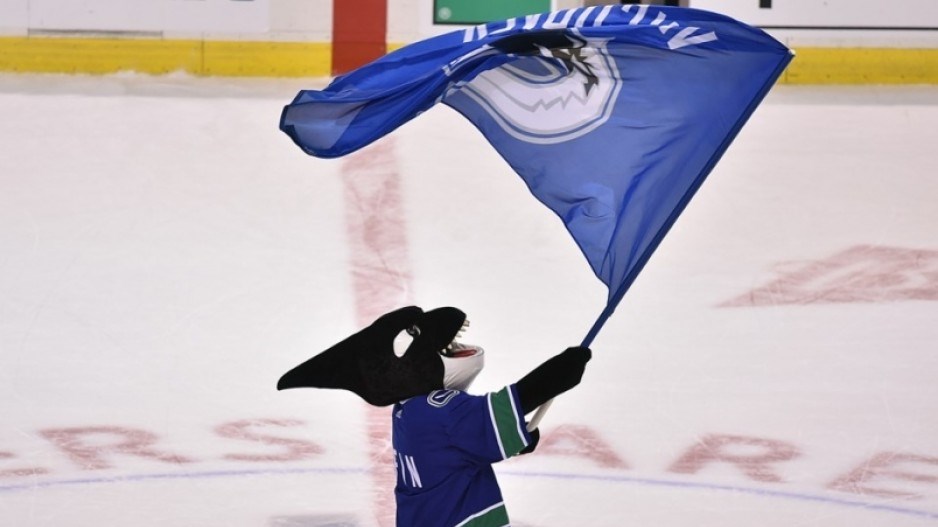Could the Canucks make their long-awaited return to the Stanley Cup playoffs this summer and do it in Vancouver?
On March 12, the NHL had announced a “pause” on the regular 2019-20 season due to the COVID-19 pandemic. Provincial Health Officer Dr. Bonnie Henry is open to the idea of Metro Vancouver becoming a host region for the National Hockey League to resume the season.
Henry suggests players would need to ensure proper physical distancing; hinting full visors may be required for all players on the ice.
“There are ways we can do it safely. I think it’s an interesting idea. I think there are ways we can look at having games being played, perhaps in B.C.,” said Henry, after being asked the question at her daily media briefing Monday.
Henry mentioned how professional sports in Europe, such as soccer, are looking to resume league play.
“There would be parameters that we’ve talked about. I would not see there being an in-ice audience, for example. But we could broadcast the games and there are ways players can take precautions to ensure that there’s physical distancing and you know when we think of hockey, which I love, people are wearing face masks. So there are ways players are protected while they’re on the ice,” said Henry.
NHL commissioner Gary Bettman told media in April the league is looking to two to four cities as hubs to play out the rest of the season over the summer months, as long as the games are held in accordance with public health orders.
Per TSN hockey analyst Bob McKenzie, Bettman said:
“The location could be anywhere besides a [COVID-19] hot spot.”
“We need a lot of ice. There does need to be practice facilities.
“We need four NHL-calibre locker rooms. Because if you’re going to play three games in one day, you’ve got to be moving things around, and you’ve got to make sure that we’re taking the proper sanitizing procedures.”
McKenzie said sources indicate “the league is keeping a running list of up to 10 NHL cities that could suitably host in the event of a centralized restart.”
Effectively, all NHL players would converge on these locations and live there, presumably taking up an entire hotel. They would then move between the hubs if or when required.
Big sports media outlets, including McKenzie’s TSN, have not suggested Vancouver as a potential hub city.
However Vancouver meets much of the criteria.
One, it has one of the lowest rates of infection in North America.
Two, Metro Vancouver has four NHL-calibre rinks in Rogers Arena, the Pacific Coliseum, the Langley Events Centre and at the University of British Columbia.
And Burnaby’s eight-rink practice facility plus the many other rinks around town provide ample space for teams.
The only question is B.C.’s testing capacity for discretionary matters such as professional sports. This has been an issue in B.C., with backlogs occurring in March and B.C. never testing people with even mild symptoms. However, testing capacity problems are widespread across North America.
Dr. Anthony Fauci, director of the National Institute of Allergy and Infectious Diseases, has previously stated frequent testing of players may be required.
NHL Deputy Commissioner Bill Daly told an Edmonton radio station May 1 that the league would not take tests away from the community.
"We're going to need to have access to testing, and we're going to make it a point that we're not accessing testing, even in a private way, if testing availability is an issue in the community," Daly told 630 CHED in Edmonton.
Another wrinkle in the plan to put players in Vancouver is that most of them would need to travel to Canada, from the U.S. and Prime Minister Justin Trudeau has stated that they would need to be quarantined for 14 days.
And it’s not yet clear how the games would be played in accordance with public health guidance and orders. Henry’s suggestion that players physically distance from one another doesn’t make clear if that is meant for off the ice and on the ice. Players will, of course, naturally come into contact with one another on the ice and they’d be required to sit side by side on the bench and in dressing rooms.




